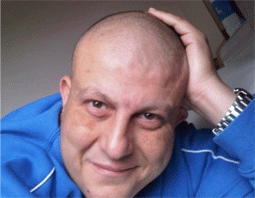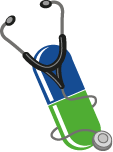ECDC patient story: Mohammed

The bacterium that was isolated from Mohammed’s bloodstream was resistant to many antibiotics, including the last-source antibiotics - a class of last-line antibiotics called carbapenems.
Mohammed’s doctors were able to successfully treat him with the correct antibiotics, because they had taken cultures in time and performed laboratory testing to see which antibiotics were effective against his bacterium.
My name is Mohammed and I’m 37 years old. I grew up in the UK but have spent the last 10 years based in Cairo, running a software development company. I have a lot of family in Egypt so living out there and travelling back and forth to the UK has been great fun.
In April 2011, I was diagnosed with acute myeloid leukaemia, a type of cancer where your body overproduces white blood cells and your immune system stops working properly. I started treatment almost immediately. Leukaemia itself isn’t that painful – you mostly just feel unwell and rundown – but the fact that your immune system isn’t functioning properly means that you are more likely to pick up infections. These can be both uncomfortable and extremely dangerous.
While I was in hospital having my second cycle of chemotherapy, I developed a high fever which the doctors struggled to control with regular antibiotics. For three days my temperature spiked uncontrollably, reaching dangerous levels as high as 40°C. Having realised there was something unusual about my infection, the doctors eventually managed to bring the fever under control using a specific combination of high-dose antibiotics. At that point the unknown nature of the infection was really scary; we were dealing with the leukaemia but no-one knew what had caused the fevers.
Further investigations showed that I had an infection with a bacterium called Escherichia coli (E. coli), which normally lives in the intestine. For reasons unknown to my doctors, I was carrying a very resistant type of E. coli. No one knows for certain where I got this very resistant type of bug from, or how long it’s been lying dormant in my intestine. The doctors thought I might have picked it up in Egypt because similar resistance types were also found there and that is where I had lived. The chemotherapy had weakened my immune system, allowing the infection to take hold.
As soon as the doctors found the infection I was moved into isolation. Even now when I go into hospital for chemotherapy, I’m not allowed to leave the room or mix with the other patients for weeks at a time. The nurses and doctors use strict contact precautions and dedicated staff to make sure the infection doesn’t spread. During my third round of chemotherapy, I developed another fever. This time the doctors knew how to treat it and it was brought under control straight away. The level of control is quite reassuring, but still, being in isolation isn’t nice.
The scariest thing is knowing that I could have this bug forever. It’s under control at the moment and the doctors have handled it really well, but even after beating the leukaemia the possibility of the infection reactivating will still be an underlying threat. I never thought infections could be life threatening, or how quickly they could become dangerous. We are lucky to have such fantastic medical support networks, but it is important to be aware of the risks and go and see a doctor immediately if you think something is wrong.
Commentary: case notes
The E. coli that was isolated from Mohammed’s bloodstream has a resistance mechanism that produces an enzyme called carbapenemase. Mohammed’s E. coli produced a carbapenemase called OXA-48, which was has been frequently reported from bacteria in the Mediterranean region, but is also being reported in the rest of Europe and globally. This enzyme, OXA-48, makes bacteria very resistant to many antibiotics, including a class of last-line antibiotics, the carbapenems.
Mohammed’s doctors were able to successfully treat him with the correct antibiotics, because they had taken cultures in time and performed laboratory testing to see which antibiotics were effective against his bacterium. Mohammed may carry this resistant E. coli in his intestine for a long time and it may become the cause of an infection again in the future. He will need to take antibiotics to prevent him for getting infections that can be associated with his leukaemia treatment. Because the OXA-48 makes the E. coli resistant to so many antibiotics, this can be extremely challenging because there are only a few left to give to him.
If antibiotics are not used correctly – if they are used when it is not necessary, they are given for too long or short a time or in the wrong dose – this can lead to emergence and spread of bacteria that are resistant to antibiotics.
It is important to use antibiotics prudently and to select the correct antibiotic as soon as possible for the treatment of infections. Delays in the selection of the correct antibiotics, especially in very ill patients like Mohammed, has been associated with higher rates of illness and death.
This is important for everyone, because resistant bacteria can be found in hospitals, but also in the community. Patients who have a depressed immune system because of bone marrow transplantation or solid organ transplantation are at particular risk, because they are more susceptible to infections.

